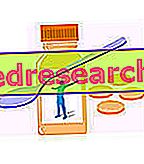The term " alcoholism ", still lacking a universally accepted definition, lends itself to different interpretations based on the context in which it is used. If in the social sphere it is customary to consider anyone who drinks excessively as alcoholic, enclosing in the term a derogatory note, in the clinical context the concepts of abuse and alcohol dependence are the key elements of the alcohol dependence syndrome, a term that is certainly more "delicate" and scientifically correct.

Beyond the understandable difficulties in finding a univocal definition, recognizing the symptoms of alcoholism is very important not only for the health personnel, but also and above all for the subject himself and for his family members. Recognizing alcoholism symptoms in the bud can in fact contribute to addressing the problem in the right direction, preserving one's own health and that of those dear to us.
At an early stage, more than the signs and clinical symptoms of alcoholism, we need to look for the spies of the problem, such as the loss of the ability to communicate in interpersonal relationships, the loss of interests towards hobbies and passions, the frequent accesses of anger, delays and absences at work, dangerous driving, amplification of family conflicts, the difficulty to "break away from the bottle", the strong need or compulsive search for alcohol and social isolation. In this regard, there are specific questionnaires that present an excellent ability to identify people at risk of alcoholism since the early stages of this disorder or illness (in relation to the chosen school of thought). Other symptoms of alcoholism include gastritis, abdominal pain, morning vomiting and increased liver volume. In general, however, the beginnings of alcoholism are characterized by subjective symptoms, such as the perception that something is wrong with alcohol and the awareness or fear of negative (family and social) alcohol-related consequences. When the symptoms of alcoholism become objective, therefore identifiable by the doctor in an unequivocal manner, we have already passed in the diagnostic phase of complications (physical, mental and relational).
In addition to researching the specific signs and symptoms of the disease, the diagnosis of alcoholism may use laboratory analysis, such as:
- the dosage of alcoholemia (amount of alcohol in the blood, suggestive of alcoholism if elevated without symptoms of drunkenness, because it indicates a tolerance to alcohol developed due to the high consumption of alcoholic beverages)
- the dosage of GGTs (Gamma-Glutamyl-Transpeptidases, generally increased in alcoholics, a sign of hepatic suffering)
- the measure of the average Globular volume (often increased in alcoholics).
- Another marker with good sensitivity and specificity is carbohydrate-free transferrin (CDT), whose serum levels tend to increase in the presence of alcoholism.
In the presence of chronic alcoholism the symptoms are quite suggestive and involve the gastrointestinal sphere (alcoholic fatty liver, jaundice, cirrhosis, gastritis, esophagitis, pancreatitis, malnutrition, vitamin deficiency), neurological (peripheral neuropathies, memory impairment, head trauma) and psychological (depression, emotional lability).
Online questionnaire to assess the risk of alcoholism
The AUDIT ( Alcohol Use Disorders Identification Test ) is an easy questionnaire consisting of TEN questions, the first three of which are sufficient to define whether the person has a suggestive condition for drinking at risk.
1. How often do you consume beverages containing alcohol?



